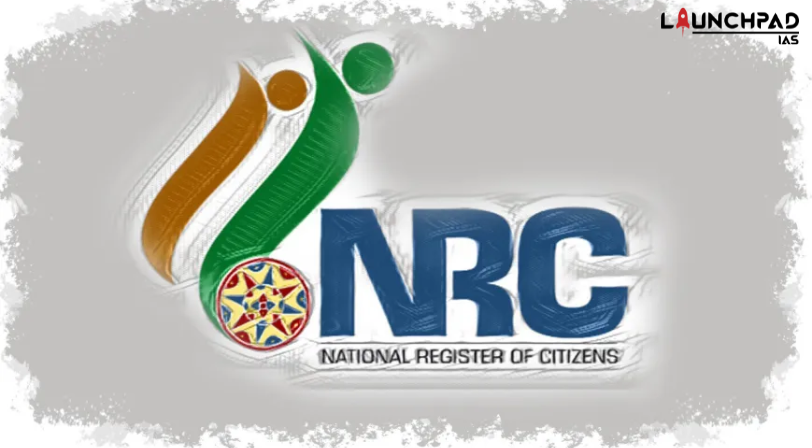About
- The National Register of Citizens is an official record of those who are legal Indian citizens. The NRC was born out of independent India’s first census in 1951, entailing the transfer of data from the Census slips.
- It includes demographic information about all those individuals who qualify as citizens of India as per the Citizenship Act, of 1955.
- All States were mandated to compile an NRC but it was done only in Assam.
- Manipur and Tripura were also granted permission to create their NRCs, but it never materialized
- The intention behind carrying out such an exercise in Assam was to prepare a village-based inventory of residents given the resistance from the State — then undivided — to house post-Partition refugees.
- Assam saw waves of migration, first as a colonial province and then as a border state in independent India
- The first National Register of Citizens was compiled in 1951 after the Census was completed that year. This NRC was prepared under a directive from the Ministry of Home Affairs (MHA).
- The NRC list of Assam comprised of those who lived in India on January 26, 1950, or were born in India had parents who were born in India, or had been living in India for at least five years before the January 26, 1950 cut-off.
Need of National Register of Citizens
Identify infiltrators:
It effectively suggests bringing legislation that will enable the government to identify infiltrators who have been living in India illegally, detain them, and finally deport them where they came from.
It will target illegal immigrants in India:
But Hindus, Christians, Sikhs, Buddhists, Jains, and Parsis coming from Afghanistan, Pakistan, and Bangladesh won’t be affected if they claim they have arrived in India after fleeing religious persecution.
3 countries:
- It essentially means, that if a nationwide NRC is implemented as proposed, any illegal immigrant from other than Pakistan, Afghanistan, and Bangladesh, will be affected.
- As for those three nations, people coming from there who belong to the Muslim community will also be affected as they are not included in the Citizenship Amendment Act.
Supreme Court Directive (2013):
- It was issued to the Centre and State to initiate an exercise in Assam to update the 1951 register.
- The order was based on a petition filed by an NGO named Assam Public Works.
Eligibility Criteria for NRC
- To be eligible for the NRC, a person must meet the following requirements:
- Anyone whose name appeared in the 1972 NRC or any of the Electoral Rolls before midnight on March 24, 1971, as well as their descendants
- Persons who have registered themselves with the Foreigners Registration Regional Officer (FRRO) in accordance with Central Government guidelines and are not regarded as illegal migrants or foreigners by any government.
- Anyone who arrived in Assam on or after January 1, 1966, but before March 25, 1971.
- People who are original Assamese residents, as well as their offspring and descendants, who are citizens of India, if their citizenship is proven beyond a reasonable doubt by the registering authorities.
- Persons who can provide any of the documents included in the list of documents eligible for citizenship issued up to midnight on March 24, 1971.
Link between the CAA and NRC:
- There is no direct link between the CAA and NRC: The Citizenship Amendment Act is meant to help members of the Hindu, Sikh, Buddhist, Jain, Parsi, and Christian communities who have migrated from Pakistan, Bangladesh, and Afghanistan until December 31, 2014, facing religious persecution, ensuring that they will not be treated as illegal immigrants and given Indian citizenship.
- Approval: The Act got the President of India’s approval in December 2019 after it was passed by both Houses of Parliament.
- Extension: The rules of this Act are yet to be framed and the Centre has sought the extension of the deadline until 2022 in the Supreme Court.
- The NRC: on the other hand is a process of valid Indian identification.


